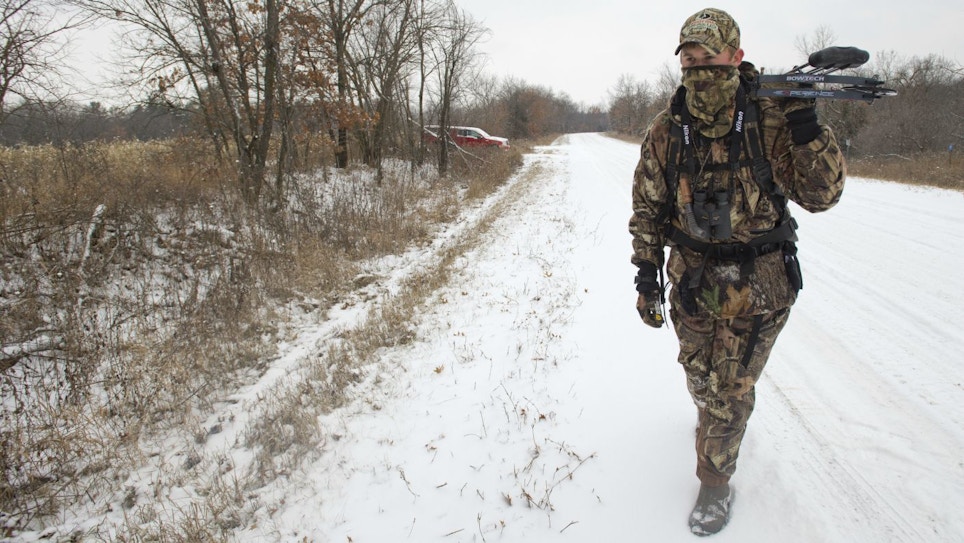Like all people, hunters sometimes take things for granted that they shouldn’t. For example, just because we hunt, believe strongly in the North American Conservation Model and think that hunting is a good thing, that doesn’t necessarily mean that other Americans feel the same way. Or do they?
A 2019 telephone survey conducted by Responsive Management and the National Shooting Sports Foundation sought to assess trends in Americans’ attitudes toward hunting, fishing, sport shooting and trapping. Responsive Management has tracked public attitudes on the four activities since 1995. Overall, the study concluded that 80 percent of Americans approve of legal hunting. Approval of hunting is highest in the Midwest (86 percent approval) and lowest in the Northeast (72 percent approval). Interestingly, Americans’ level of approval of hunting has remained generally consistent over the past 25 years, with a gradual increase since 1995, when approval stood at 73 percent.
However, depending on the stated reason for hunting, approval of hunting varies considerably. When the reasons are for meat (84 percent), to protect humans (85 percent), to obtain locally-sourced food (83 percent), for wildlife management (82 percent), and to obtain organic meat (77 percent), approval is very high. When the reason is for sport (50 percent) or the challenge (41 percent), or trophy hunting (20 percent), support drops. The species being hunted also affects approval of hunting. Hunting of ungulates and waterfowl is more accepted than hunting of predator species, while the hunting of African lions and elephants has even less approval among Americans.
The approval of hunting also depends on the technique being used, especially the extent to which the technique in question allows for fair chase. For example, more Americans approve of bowhunting (80 percent) than approve of hunting with high-tech gear like lasers or hearing devices (26 percent) or hunting inside a high fence (21 percent.) Hunting with dogs was approved by 55 percent of respondents, but using attractant scents (43 percent) and bait (32 percent) was not popular. Neither is spring bear hunting, which received just 20 percent approval.
The high level of approval of hunting for the meat mirrors other research that shows that millennials and Gen Xers are drawn to hunting if the primary purpose is to help support a locavore lifestyle. The survey also asked respondents if they had eaten wild game meat, such as venison or deer, wild turkey, boar, buffalo or duck in the 12 months prior to the survey. Less than half of Americans (43 percent) said they had, with the Midwest (55 percent) the only region where more than half the residents had done so.
The survey also found that 81 percent of Americans approve of legal recreational shooting, a level consistent with previous years’ survey results. Groups most commonly associated with approval of sport shooting are hunters and anglers, those who grew up with a family that owned firearms, those who live in rural areas, white residents, and male residents. At the opposite end, the groups most commonly associated with disapproval of shooting are black residents, those who did not grow up with a family that owned firearms, Northeast region residents, Hispanic residents, and female residents. When asked to select a statement that best reflects their opinion of recreational shooting sports, the three statements and percentages who selected each were: Shooting sports are perfectly acceptable (65 percent); Shooting sports are OK, but maybe a little inappropriate now (23 percent); Shooting sports are inappropriate nowadays (9 percent.)
The survey also asked respondents, regardless of their personal opinion of hunting, if they agree or disagree that it is acceptable for other people to hunt, provided they do so legally and in accordance with hunting laws and regulations. Most Americans (92 percent) agree that it is acceptable, compared to only 6 percent who disagree.”
Not surprisingly, trapping is more controversial than hunting, fishing, or shooting, with just 52 percent of Americans approving while 31 percent disapprove. However, as with hunting, the stated motivation for trapping affects the approval rating. There is relatively high approval of trapping for wildlife restoration, population control, food, and property protection, but less approval of trapping for money, fur clothing and recreation.
The survey asked about legal hunting so that poaching or other illegal activities would not be considered. Sport shooters and anglers are also more likely to approve of hunting than the average American. Other groups associated with higher levels of approval of hunting are those who live in rural areas, those who grew up in a family that owned firearms, white residents, and male residents. On the other hand, groups associated with lower levels of approval of hunting include Hispanic residents, those who did not grow up in a family that owned firearms, black residents, Northeast region residents, and female residents.
The survey also asked respondents, regardless of their personal opinion of hunting, if they agree or disagree that it is acceptable for other people to hunt, provided they do so legally and in accordance with hunting laws and regulations. Most Americans (92 percent) agree that it is acceptable, compared to only 6 percent who disagree. Given that the initial question showed that 13 percent of Americans disapprove of hunting, this followup question suggests that just over half of those who disapprove nonetheless feel that others should have the right to hunt.
These numbers are, generally speaking, encouraging, though they don’t reflect the trend that overall hunter numbers are declining as a percentage of the overall population, or why that decline is taking place — which is a topic for discussion another time. What it does tell us is that, when done ethically, in a fair chase manner, with the primary goal of obtaining meat, a very high percentage of our fellow countrymen approve of hunting, even if they don’t participate themselves.
What’s your take on these survey numbers? Does your business reflect the survey results? Drop me a note at editor@grandviewoutdoors.com and let me know.






